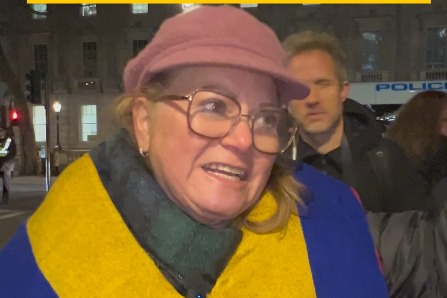Compromise hailed as revised North American trade pact is signed in Mexico

The revamped North American trade pact signed in Mexico on Tuesday is being praised as a rare moment of cooperation in a world divided by trade and political disputes.
The ceremonial signing of the United States-Mexico-Canada Agreement, or USMCA, could carry across the finish line US President Donald Trump's three-year effort to revise the North American Free Trade Agreement, or NAFTA, which he has said cost millions of US manufacturing jobs since its signing in 1994.
Mexican President Andres Manuel Lopez Obrador, Canadian Deputy Prime Minister Chrystia Freeland and US Trade Representative Robert Lighthizer signed the agreement.
The pact next must be approved by the Mexican and Canadian legislatures and both houses of the US Congress, but Senate Majority Leader Mitch McConnell has said the Senate will not consider it until after a likely impeachment trial. A House vote is expected before US Congress adjourns for the year. The deal also will require Trump's signature.
"After working with Republicans, Democrats and many other stakeholders for the past two years, we have created a deal that will benefit American workers, farmers and ranchers for years to come," Lighthizer said at the ceremony. "This will be the model for American trade deals going forward."
Lighthizer called it "a miracle" that the deal came together; Lopez Obrador credited Trump for working with him, while Freeland celebrated a win for multilateralism.
"This is a win-win-win agreement which will provide stability for working people in all three countries for years to come. That is no small thing," she said.
Among the key aspects of the trilateral deal are improved enforcement of worker rights. Democrats also succeeded in removing a 10-year protection for manufacturers of new drugs, including biologics, that had won a reprieve from lower-cost competition in the original accord.
For Democrats, the deal also serves as a rebuttal to Trump's and Republicans' assertions that their only agenda has been pursuing his impeachment, the articles of which were approved by a House committee on the same day as the USMCA signing.
While one trade deal was reached, another big one is pending-with China. Trump has five days to decide whether to impose tariffs on nearly $160 billion in Chinese consumer goods 10 days before Christmas. Implementation of the tariffs could derail prospects for a "Phase One" trade deal between the world's two largest economies.
The Trump administration said in August that, as of Dec 15, it would levy tariffs of 15 percent on billions in Chinese-made consumer goods.
"It was necessary to get the USMCA agreement out of the way to focus the US negotiators back onto the China trade talks," said Douglas H. Paal, a fellow in the Asia Program at the Carnegie Endowment for International Peace.
"The China-US trade deal could still collapse or drag out beyond the election, but the chances are relatively small," Paal said.
The USMCA was signed more than a year ago to replace NAFTA, but Democrats controlling the House of Representatives pushed for major changes to labor and environmental enforcement.
"There is no question of course that this trade agreement is much better than NAFTA," House Speaker Nancy Pelosi said, adding that it is "infinitely better than what was initially proposed by the administration".
The pact requires that 40-45 percent of cars eventually be made in countries that pay autoworkers at least $16 an hour-that is, in the United States and Canada and not in Mexico. The deal was criticized by some business groups in Mexico.
Senator Pat Toomey, a Pennsylvania Republican, said the pact veered to the left politically and "undermines the free flow of capital" from the US to its trading partners.
Zhao Huanxin in Washington, Reuters and The Associated Press contributed to this story.





























